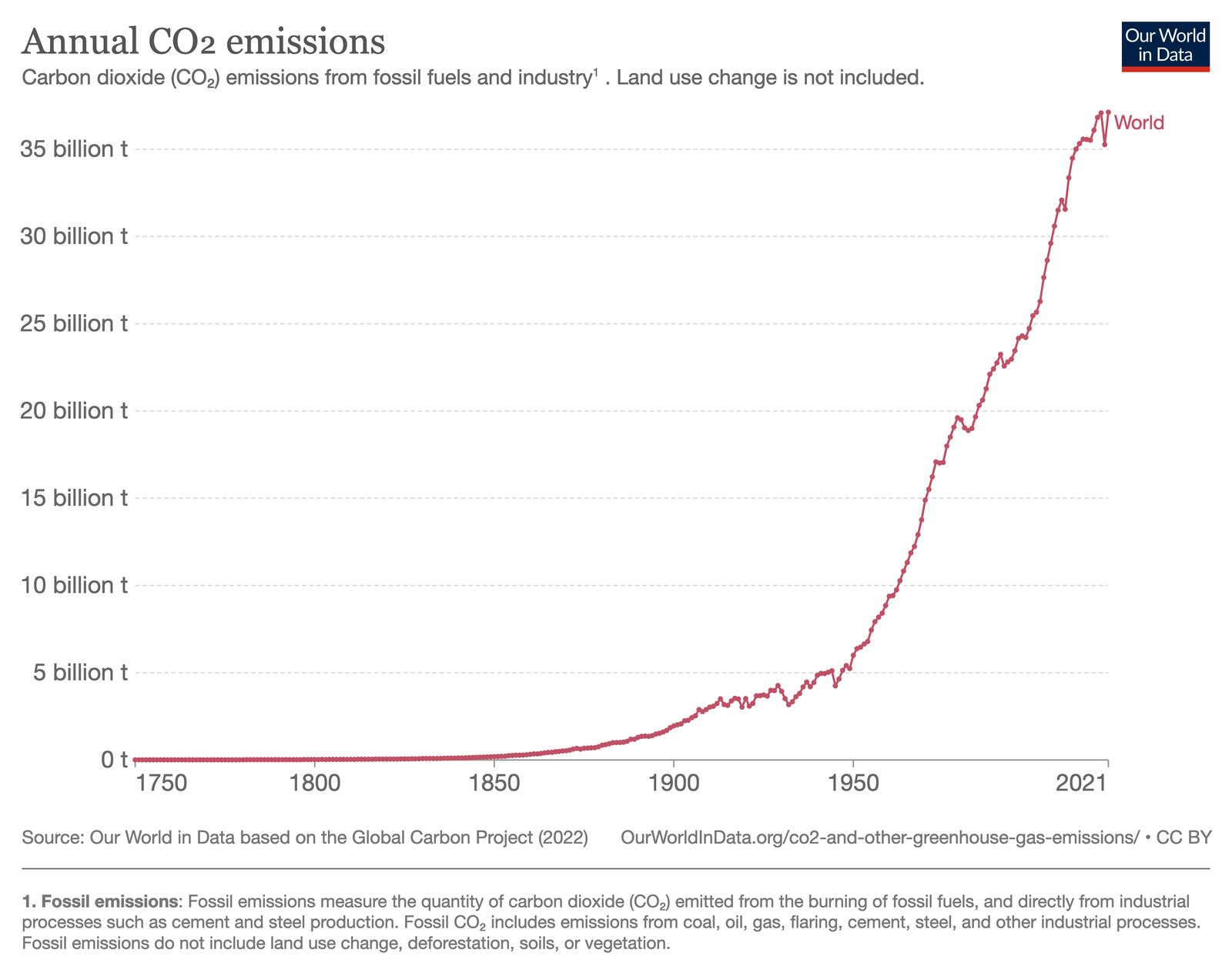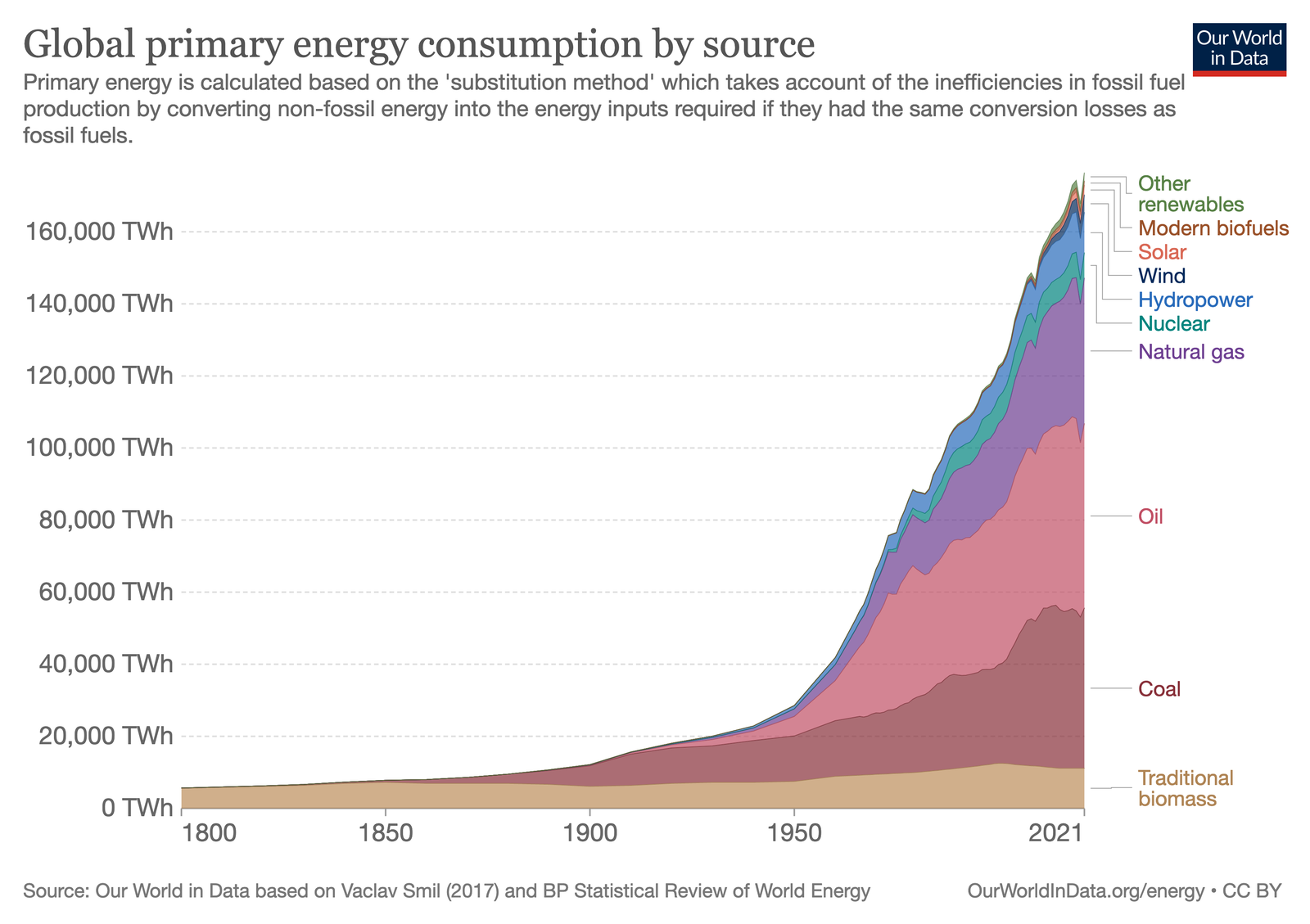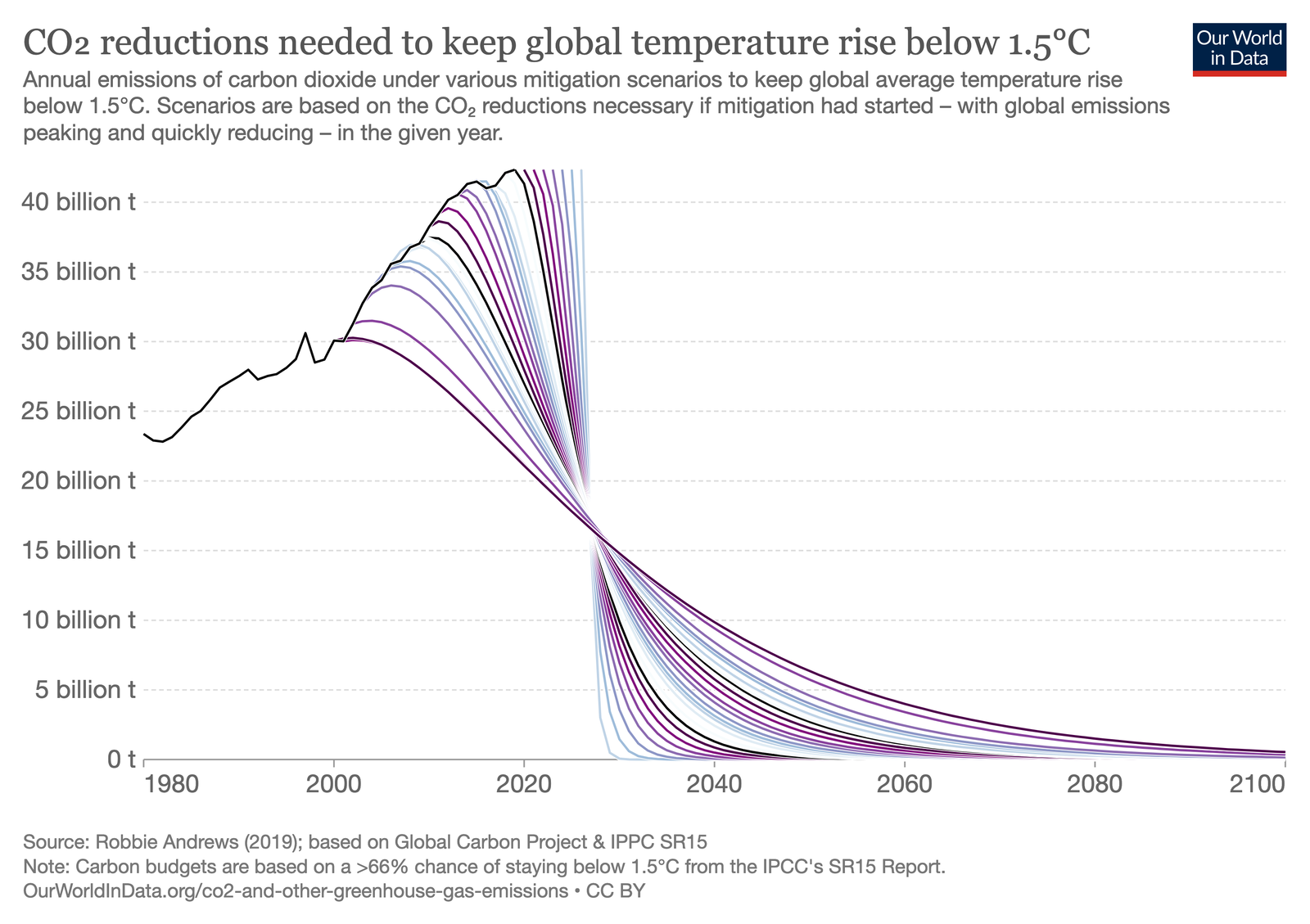We are still not taking climate change seriously


· 7 min read
When the USA mobilised for World War II everything changed. American industry essentially stopped what it had been doing and instead turned their efforts to building tanks, planes and armaments. Private car manufacture ceased for 3 years. Millions of students, retirees, housewives and unemployed entered the active labour force. Essential goods were rationed and sacrificing certain items became the norm. CEOs who refused to assist with the wartime effort were forcibly removed by order of the government.
Similarly, during the onset of the COVID-19 pandemic governments around the world implemented policies previously considered impossible: closing schools, restricting movement, implementing lockdowns, mandating work-from-home for those who were able to and ordering the closure of non-essential businesses where people were likely to gather and increase the risk of transmission of the virus. In unprecedented times the unprecedented becomes not just possible, but necessary.
With the response to these emergency situations in mind, and at the conclusion of COP27, it is particularly disheartening to see that leaders still aren’t taking climate change – the greatest threat humanity has ever faced - seriously. This has been the case for decades and will continue to be the case until leaders make commitments - and implement them - to reduce fossil fuel use effective immediately, with binding annual targets and “in a fair, just and scientifically informed way” until we reach zero emissions, roughly by the middle of next decade.
The facade of action comprised of goals set in the future - for someone else to deal with - based on technology that either isn’t feasible at scale, or doesn’t yet exist, is pure lip-service. But the figures don’t lie: greenhouse gas (GHG) emissions are now 60% higher than they were when the Rio Earth Summit was held in 1992. As UN General Secretary António Guterres has said “[w]e are on a highway to climate hell with our foot on the accelerator.”
How different could our predicament look if we dared to ask “how close to zero can we keep warming and how fast can we get there?” instead of prioritising flawed mathematical models that favour inaction and uphold the status quo. How much brighter would the future be if we, like we have done for other events, treated climate change as a genuine emergency, and did all we could to avoid catastrophic warming?
Reducing fossil fuel use in a meaningful way is unthinkable in our current economic system. Over the last two decades the only time there has been a significant global reduction in GHG emissions was 2009, during the global financial crisis, and 2020, during the COVID-19 pandemic (see chart 1), two events that are associated with recession and hardship. Under this economic system we can have ‘prosperity’ (real or perceived, associated with economic growth) or we can have reduced emissions, but we can’t have both.

The relentless growth in emissions means that all of the renewable energy deployed to date has not displaced fossil fuel use (see chart 2), it has simply added to our energy mix, and consequently has not led to a year-on-year reduction in GHGs. The focus on renewable energy deployment is misplaced. We need to focus on winding down fossil fuel use.

What can we learn from those two years in which global emissions dropped? Globally, ‘green-growth’ has never, not for one year, happened even in the narrow sense of the term which relates specifically to GHG emissions, our other ecological crises ignored. Reduction in economic activity - that is production and consumption - is necessary if we are to see global reductions in GHG emissions, particularly of the magnitude needed to keep warming “well below 2°C above pre-industrial levels and pursuing efforts to limit the temperature increase to 1.5°C above pre-industrial levels” as per the Paris Agreement. Scientists believe that 2°C of warming will activate tipping points in the Earth’s System that will lead to ‘Hothouse Earth’: 2°C is not just a politically ‘nice’ target, it could well be the difference between a habitable planet and an uninhabitable one.
Reducing energy use as much as possible (ideally by 50% by 2050) will have the added benefit of making a renewable roll-out much more feasible. Conversely, continuing to grow the economy (and hence energy use) while trying to decarbonise the energy grid is, to quote economic anthropologist, Jason Hickel, “like running down an escalator that’s accelerating against you”.
Because we have spent the last several decades growing our emissions rather than reducing them, we are now in a position where we do not have the luxury of time. Thirty years ago it would have been enough to stop new fossil fuel projects, but it isn’t enough anymore. We urgently need to bend the emissions curve and the trajectory needs to be steep. We need to stop fossil fuel use.

With this in mind, the question then becomes ‘how can we reduce economic activity in nations that are exceeding their fair share of the planetary boundaries, including climate change, while ensuring we meet the needs of all? How do we design a system so that we do not have to trade off ‘prosperity’ for emissions reductions? First of all, we need to nationalise the energy industries, so that the reduced energy that is available under the binding annual target goes where it will most contribute to human wellbeing and not where it is most profitable. Then we need to scale down the industries causing the most harm to nature but providing the least benefit to humanity: excess consumer goods, advertising, single use plastics, red meat, paper goods and food oils driving deforestation, over-sized new housing builds, aviation (especially private jets), SUVs, speculative finance, armaments etc.
We need to reduce the working week to 4 days to share the remaining jobs around, and provide a federal jobs guarantee to ensure work is available for everyone, with a minimum basic income for those unable or unwilling to work. We need to provide universal services to all: high quality healthcare, public transport, and education, beautiful and abundant parks, libraries and other shared facilities, and quotas of water, electricity and internet. We need to end planned obsolescence, move from ownership to sharing, adjust the way we provide finance, address income and wealth inequality and provide a debt jubilee. Fundamentally we need a cultural shift to admiring “sufficiency” and living within the means of the planet, rather than idolising excess wealth and planet harming behaviours.
We’ve known for decades that GDP isn’t a useful measure of wellbeing (indeed GDP and wellbeing have been decoupled in wealthy nations for decades), we’ve known for just as long that there are limits to growth, and that if we continue to ignore those limits we risk the collapse of civilisation as we know it. There is empirical evidence that demonstrates that GDP/capita isn’t linked to social outcomes, rather the level of universal services provided. Given this, why do we persist with this destructive and harmful economic system? In a nutshell, because it enables the rich to get richer, and through the process of cultural hegemony we’ve been led to believe growth is in our best interests too. For the vast majority of us, this is not the case.
Given all that is at stake, there is an obvious path to take here. How do we morally justify being able to reach zero emissions significantly earlier because energy use has been halved, but not taking it?
There might be a morally obvious path here, but for now we lack the social will to get there. The answer lies in growing the number of people who care in ever increasing concentric circles – as opposed to watering down our not-negotiable needs (by virtue of the laws of nature being fixed) in a misplaced desire to appeal to those who are furthest away from us ideologically. Engaging people in this way will enable us to reach a ‘social tipping point’ where action becomes inevitable. Whatever you do, you have a role to play in activating this social tipping point so that we are finally taking climate change seriously. What will you do to raise awareness of the urgent changes we need and how we can bring them about?
Illuminem Voices is a democratic space presenting the thoughts and opinions of leading Sustainability & Energy writers, their opinions do not necessarily represent those of illuminem.
Aaron Bruckbauer

Pollution · Greenwashing
Jesse Scott

Carbon Market · Carbon Regulations
Glen Jordan

Sustainable Lifestyle · Sustainable Living
Inside Climate News

Pollution · Nature
The Jerusalem Post

Biodiversity · Climate Change
earth.com

Climate Change · Effects